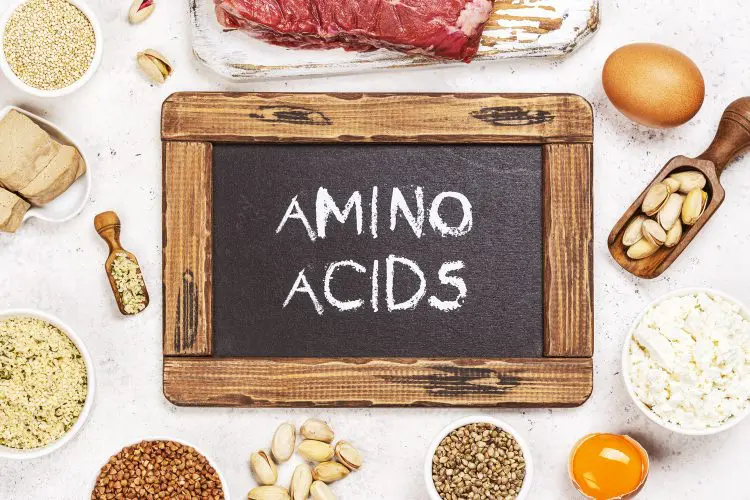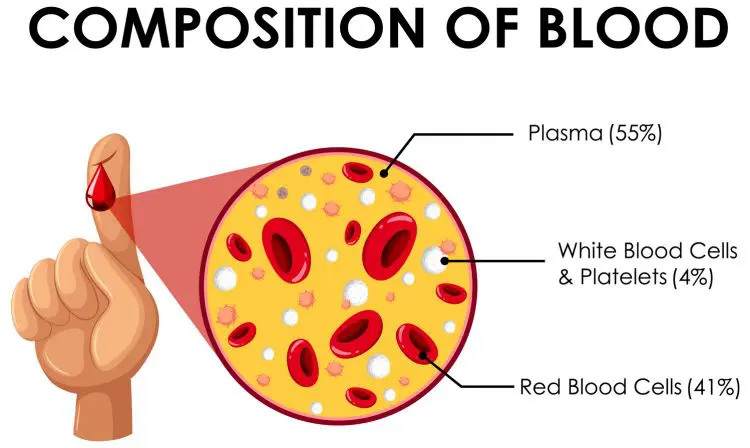Every bodybuilder knows how important protein is. After all, that’s why most lifters fill up on chicken, steak, and eggs and chug down protein shakes every day.
However, in many ways, it’s not the protein that’s critical for muscle repair and growth, but amino acids, which are the building blocks of protein.
Broadly speaking, there are two types of amino acids – essential and non-essential, which are also known as conditionally essential. Essential amino acids must be obtained from your diet. High protein foods contain all the essential amino acids, which is why they should be staples of your diet.
However, providing your body gets all the essential amino acids it needs, it can synthesize (manufacture) the non-essential amino acids.
Not eating enough protein means you could end up being deficient in essential AND non-essential amino acids. There are 20 amino acids in total, with nine being deemed essential and 11 non-essential.
Every amino acid is important, and they all have a variety of functions. Some are taken in supplement form, such as the branched-chain amino acids leucine, isoleucine, and valine.
Another popular amino acid supplement is glutamine, also known as L-glutamine. In this article, we explain what this amino acid does and how best to use it.
What is Glutamine?
Glutamine is one of the 11 non-essential amino acids. That means, providing you eat enough of the nine essential aminos, your body can manufacture it. Glutamine is the most abundant amino acid in the human body. It can be found in muscle tissue and blood plasma and makes up about five percent of the amino acid content of animal-derived proteins, such as meat, fish, and dairy.
The following is the amount of glutamine in 100 grams of the specified foods (1):
- Eggs: 0.6 g
- Beef: 1.2 g
- Skim milk: 0.3 g
- Tofu: 0.6 g
- White rice: 0.3 g
- Corn: 0.4 g
However, despite being so abundant, there may be times when you could benefit from extra glutamine, which is why a lot of people take it in supplemental form.
Glutamine vs. L-Glutamine – What’s the Difference?
There are two forms of glutamine – L-glutamine and D-glutamine. They are very similar, but their molecules are arranged slightly differently. D-glutamine, while abundant, appears to have very few nutritional, health, or performance benefits. However, L-glutamine has many more uses and is the form found in food and supplements.
Because D-glutamine is deemed to be relatively unimportant, and only L-glutamine offers any real benefits, most people use the term glutamine and drop the precursive letter. But, if you read the ingredients list on your supplement label, don’t be surprised if you see L-glutamine listed even if the name of the product only says glutamine.
In short, if you see glutamine, whatever you’re reading is most likely referring to the L-glutamine form because D-glutamine isn’t particularly beneficial.
What Does Glutamine Do?
Like most amino acids, glutamine has several functions. It plays a vital role in muscle repair and growth, but it is involved other processes too, including:
Immunity
Glutamine has a critical role in the function of your immune system. In fact, it’s one of the primary sources of fuel for immune cells, particularly leukocytes or white blood cells (2).
Glutamine usage increases during illness, and if you aren’t getting enough, your body will take what it needs from your muscles. For this reason, glutamine is sometimes prescribed during severe illness as it may enhance recovery. Studies suggest that supplementary glutamine can speed up recovery from surgery, burns, and illness (3).
Read more, important diet habits to boost your immune system.
Intestinal Health
The intestines are part of the digestive system but are often considered to be a part of the immune system, too. As well as being a source of energy for your immune cells, glutamine is also an energy source for the cells of your intestines.
In addition to powering your intestinal cells, glutamine helps to maintain the barrier between your intestines and the rest of your body, preventing harmful bacteria from leaking from your gut.
Exercise Performance
Glutamine is a popular sport and bodybuilding supplement. Studies suggest that taking glutamine won’t dramatically increase muscle mass, but it may help decrease muscle soreness and speed up recovery after intense training (5).
This makes a lot of sense given how glutamine has been shown to enhance recovery after surgery. Glutamine may also reduce fatigue during exercise (6).
The Benefits of Glutamine
The functions of glutamine mean that this amino acid may offer several worthwhile benefits.
These include:
Faster recovery from intense workouts – training hard takes a lot out of your body. Lifting heavy weights causes microscopic damage to your muscles. While this sounds unpleasant, this breakdown is what triggers your muscles to grow back bigger and stronger.
Needless to say, the faster you recover from your workouts, the sooner you’ll be able to get back in the gym and train again. More workouts mean faster progress.
Less muscle soreness – delayed onset muscle soreness (DOMS) usually follows a hard workout. It’s caused by several factors, including muscle microtrauma, inflammation, and the accumulation of the by-products of energy metabolism.
It can range from mildly uncomfortable to debilitating. If you find DOMS unpleasant to live with, taking a glutamine supplement may help.
Train harder and longer – longer, more intense workouts could produce better, faster results. Taking glutamine may help delay fatigue, increasing your work capacity. If you want to train harder or longer, glutamine could help.
Fewer illnesses – you can’t train if you are ill. Taking glutamine could help strengthen your immune system so that you suffer fewer illnesses and don’t have to take unplanned breaks from training. Training while ill may delay your recovery, too. When it comes to disease, avoidance is the best policy.
Faster recovery from injury – in medical situations, glutamine is prescribed to speed up recovery from illness, surgeries, and burns. Because of its therapeutic properties, it makes sense that taking glutamine may also speed up your recovery after injury.
Better nutrient absorption – when it comes to building muscle and strength, diet is as important as training. The food you eat puts back into your body what strenuous exercise takes out. That means your digestive system needs to be working correctly, so you can extract all those beneficial nutrients and drive them into your muscles.
Because glutamine is good for your digestive system, taking this supplement could help you get more nutrients from the food you eat.
How to Take Glutamine Supplement
For any supplement to work, you should use it according to the manufacturer’s instructions. That said, the average recommended glutamine dose is 20-30 grams per day.
To get the most from glutamine supplementation, you should take this amino acid in divided doses to keep your plasma levels high, e.g., 10 grams three times a day.
On training days, take 10 grams before and 10 grams after training to make the most of its fatigue-fighting and recovery-boosting effects. On non-training days, just take your glutamine supplement every few hours, e.g., 8am, 2pm, and 8pm.
Unlike some supplements that lose their potency with repeated or long-term use, there is no indication that taking glutamine for prolonged periods makes it any less effective. As such, there is no need to cycle glutamine.
Tip: Find your daily protein intake here.
Glutamine Side Effects
Glutamine is a naturally occurring substance. Even if you don’t use supplemental glutamine, you probably consume 5-10 grams of the stuff every day, as it’s present in so many foods, and your body is always making it. As such, glutamine is usually considered to be GRAS – meaning that it is Generally Regarded as Safe.
Studies testing dosages from five to 45 grams per day reported no significant side effects (7), so glutamine should present no risks to your health.
However, if you are unsure, you should speak to your doctor before taking glutamine or any other sports or health supplement.
Glutamine for Bodybuilding – Wrapping Up
Like all amino acids, glutamine plays a role in muscle repair and growth. Amino acids are often called the building blocks of protein, and your body uses them to fix the damage caused by intense workouts. That’s why protein, which is an excellent source of amino acids, is so crucial for successful bodybuilding.
Glutamine is present in most of the food you eat, and your body also makes it. That said, there are times when more glutamine can be beneficial. Using a glutamine supplement may speed up your recovery after training, delay the onset of fatigue, reduce post-exercise muscle soreness, and prevent illness, all of which should enhance your progress.
You probably won’t feel glutamine working, and it’s not a bodybuilding miracle supplement, but it could help you get a little more from your workouts. And, when it comes to building muscle and strength, every little helps, right?!
References:
1. PubMed: Evaluation of A Novel Food Composition Database That Includes Glutamine and Other Amino Acids Derived from Gene Sequencing Data https://pubmed.ncbi.nlm.nih.gov/19756030/
2. PubMed: Nutrition, Anabolism, and the Wound Healing Process: An Overview https://www.ncbi.nlm.nih.gov/pmc/articles/PMC2642618/
3. PubMed: Effects of Glutamine Supplementation On Patients Undergoing Abdominal Surgery https://pubmed.ncbi.nlm.nih.gov/19382426/
4. PubMed: Role of Glutamine in Protection of Intestinal Epithelial Tight Junctions https://www.ncbi.nlm.nih.gov/pmc/articles/PMC4369670/
5. PubMed: The Influence of Oral L-Glutamine Supplementation on Muscle Strength Recovery and Soreness Following Unilateral Knee Extension Eccentric Exercise https://pubmed.ncbi.nlm.nih.gov/25811544/
6. PubMed: Glutamine as an Anti-Fatigue Amino Acid in Sports Nutrition https://www.ncbi.nlm.nih.gov/pmc/articles/PMC6520936/
7 – PubMed: Risk Assessment for The Amino Acids Taurine, L-Glutamine And L-Arginine https://pubmed.ncbi.nlm.nih.gov/18325648/
Tip: If you're signed in to Google, tap Follow.















